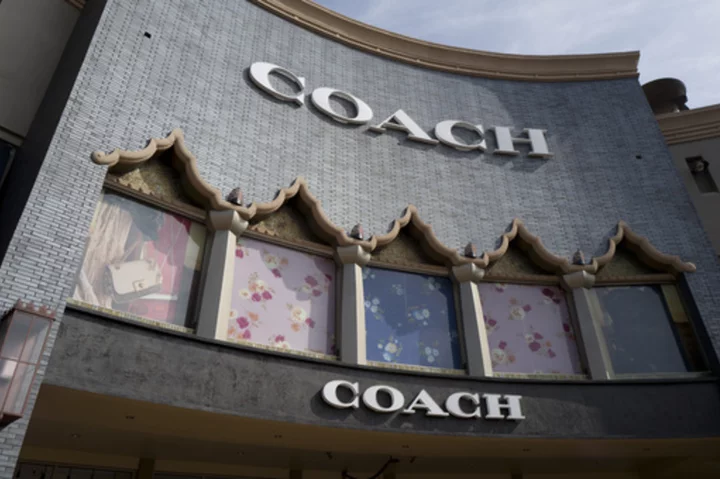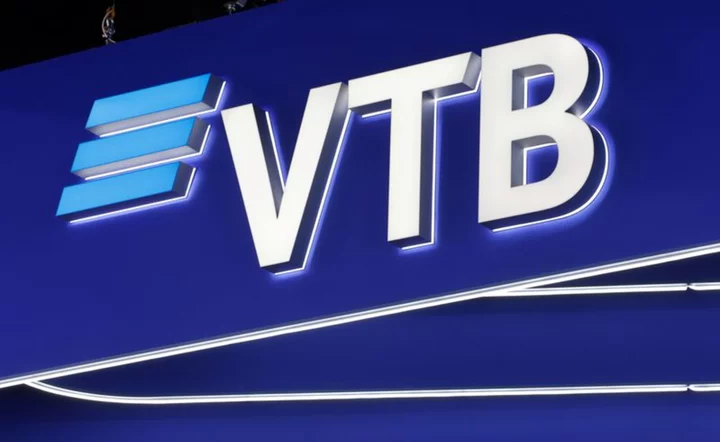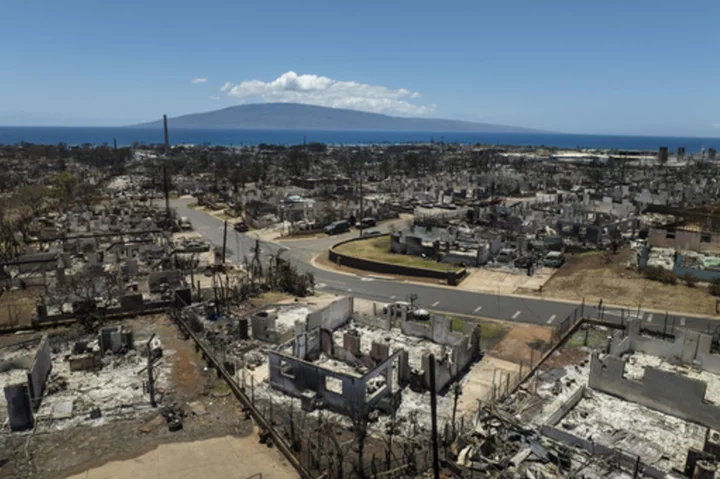NEW YORK (AP) — Tapestry, the parent company of luxury handbag and accessories retailer Coach, is buying the owner of fashion brands including Michael Kors, Versace and Jimmy Choo, Capri Holdings.
Big fashion has been getting even bigger through a spate of acquisitions as U.S. players seek more sway in Europe. The approximately $8.5 billion (7.7 billion euro) deal puts Tapestry in a better position to do just that in going-to-toe with rivals like LVMH and Kering.
Tapestry Inc., whose brands also include Kate Spade and Stuart Weitzman, said Thursday that the combined company had global annual sales of more than $12 billion (10.9 billion euro) and has a presence in more than 75 countries. Tapestry has a market cap of nearly $10 billion (9.1 billion euro), while Capri's is around $4 billion (3.6 billion euro).
“The combination of Coach, Kate Spade, and Stuart Weitzman together with Versace, Jimmy Choo, and Michael Kors creates a new powerful global luxury house,” Tapestry CEO Joanne Crevoiserat said in a prepared statement.
Capri Holdings Ltd. shareholders will receive $57.00 (51.9 euro) per share in cash.
"By joining with Tapestry, we will have greater resources and capabilities to accelerate the expansion of our global reach while preserving the unique DNA of our brands,” Capri Chairman and CEO John Idol said.
French luxury conglomerate Kering reached a deal in July to buy a 30% stake in Italian fashion house Valentino for 1.7 billion euros from Qatari investment firm Mayhoola. Under the agreement, Kering, which owns Gucci, has the option to buy 100% of Valentino no later than 2028.
Kering had also tried to snap up Tom Ford, but beauty company Estee Lauder wound up reaching a deal with the luxury goods maker.
LVMH, meanwhile, purchased famed jewelry company Tiffany in 2021 after a back-and-forth between the two companies over the agreement.
Buying Capri is a strategic move for Tapestry on many levels.
Neil Saunders, managing director of GlobalData, said the acquisition will “create an American fashion giant that, while not quite as prestigious or large as its European counterparts, would wield a significant influence in the luxury market.”
“Luxury is facing something of a slowdown, especially in the North American market where consumers, even at the higher income end of the market, are starting to curtail spending," Saunders said. “This has put pressure on Tapestry and Capri, both of which are now looking to international markets to bolster growth.”
The boards of Tapestry and Capri have approved the deal, which is expected to close next year. It still needs approval from Capri shareholders.
Capri's stock jumped 58% before the market open on Thursday, while shares of Tapestry fell 3.7%.









